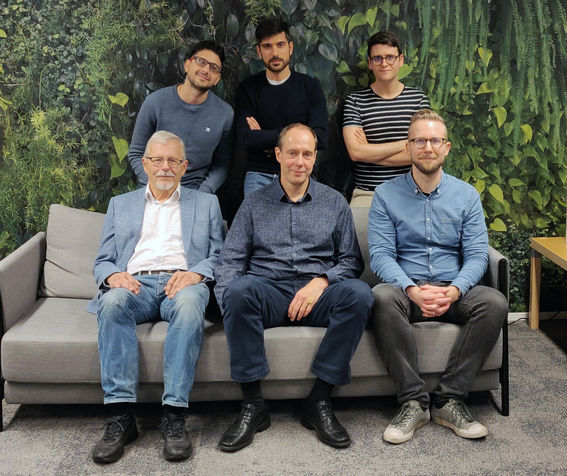New biopsy innovation improves reliability of cancer diagnosis; wins first prize in pitching competition

A correct diagnosis is an important first step in cancer treatment. A biopsy, or needle sample, is a routine method for taking soft tissue or cell samples from a patient for a diagnosis. Biopsies are used in diagnosis and planning of treatment in most of cancer cases.
The new type of biopsy is being developed as part of the Aalto University project called AdvaNeedle. It aims to solve the challenges of current thick- and fine-needle sample by reducing the pain caused and incorrect diagnoses. Currently, a significant number of biopsies fail because the sample taken did not contain enough cells. In some cases, considerable safety risks are involved in the taking of the sample.
The new method is expected to improve reliability. AdvaNeedle eliminates the need to repeat the procedure, and the patient does not need to be hospitalised after the sample is taken. The device utilises ultrasound technology.
The new needle biopsy won first prize at a pitching competition for impact through research at the Health Design 2019 event. The prize was donated by the Instrumentarium Science Foundation.
“The new type of needle is simple, disposable, and competitively priced. It is also easy for doctors to take into use”, says Jouni Rantanen,project director of commercialization.
With the help of an imaging method the needle is guided to the right spot to take the tissue sample.
“Our starting point with this invention was generation of new technology allowing reducing the size of the devices. In clinical use it is important that the device is easy and practical to operate”, says Professor Heikki Nieminen.
The AdvaNeedle team includes Heikki Nieminen, the head of the Medical Ultrasonics Laboratory, Jouni Rantanen, who is responsible for the commercialisation of the project, Saif Bunni, who is responsible for development work of the needle, Yohann Le Bourlout, who handles the development of the device, Emanuele Perra, who is responsible for testing of the method, while Gösta Ehnholm, who holds the title of Docent, is the project's adviser, and is also currently working together with Harvard University in the development of ultrasound. Other members of the team include Professor Anu Airaksinen from the University of Helsinki, and from the beginning of 2020, Dr Nicholas Hayward.
Cancer is the second-most common cause of death in the world. According to the World Health Organisation about 18 million new cancer diagnoses occur each year and the number is expected to rise to 24 million by 2030. The average risk to get cancer during a person's lifetime is about 38 percent.
Read more news

VTT, Aalto University and GTK: How to ensure Finland captures the multi‑billion growth potential of mineral economy
Finland is rising to the forefront of the mineral economy through new research initiatives and closer collaboration
Significant donation to boost pavement engineering research and education
Companies and associations in the field have donated €400,000 to the School of Engineering.
Design strengthens industrial competitiveness – human-centered factory work at the core
Factory work is undergoing a transformation: new technologies and artificial intelligence are changing the content and roles of work. Aalto University’s Department of Design is studying this change from a human-centered perspective in the HiFive project.






